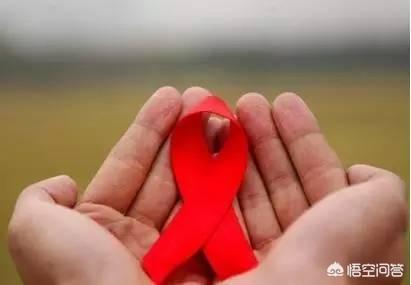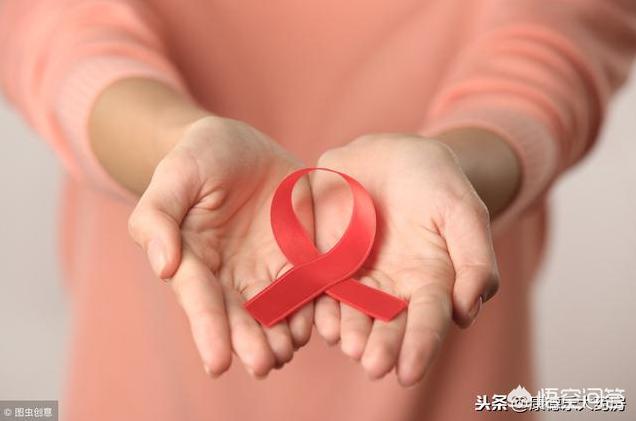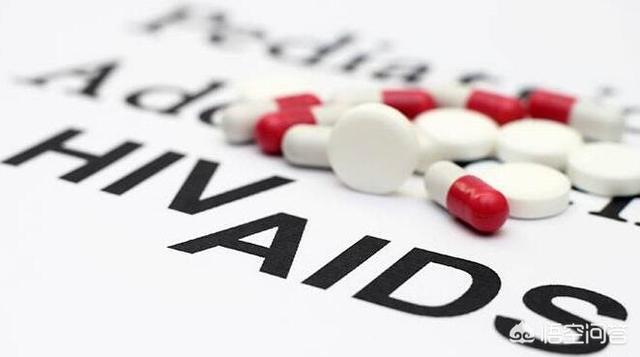How long is the incubation period for HIV? What is the best way to prevent HIV?
On June 5, 1981, the Centers for Disease Control and Prevention (CDC) first reported Acquired Immunodeficiency Syndrome (AIDS), or AIDS, among men who have sex with men, and in 1983, the Institut Pasteur in France succeeded in isolating the Human Immunodeficiency Virus (HIV), the causative agent of AIDS. Some studies suggest that HIV may have originated in Africa and then spread to Europe and the United States. It may have been endemic in humans for as long as 60 years.
When a person is infected with AIDS, he or she generally goes through three periods, namely, the acute infection period, the carrying period and the AIDS period. It is currently believed that the incubation period of AIDS is 2-10 years on average, with the longest period reaching 15 years and the shortest six months.
AIDS is a serious infectious disease with an extremely high mortality rate, for which there is currently no curable drug or effective vaccine. Since 1981, when the first case of AIDS was discovered, more than 40 million people worldwide have been infected with AIDS, resulting in the deaths of more than 25 million people, making AIDS a rare "plague" in the history of mankind.
UNAIDS and the World Health Organization believe that AIDS is preventable and that health education and health promotion are among the most important strategies for the prevention and control of AIDS.
The modes of transmission of AIDS are well established and there are three, namely, sexual, blood and mother-to-child transmission.
The latest statistics indicate that the rate of sexual transmission of HIV is over 90% and therefore the prevention of sexual transmission of HIV is a top priority. The principles of prevention of sexual transmission of AIDS are abstinence, fidelity and the use of condoms. Do not have sex with anyone other than your spouse, avoid pre-marital sex, and if you can't do the first two, use a condom every time you have sex. To prevent HIV transmission through blood, avoid drug use in any way, avoid unnecessary intravenous injections and punctures, and don't share razors, toothbrushes, and so on. Mother-to-child transmission is now almost non-existent due to national requirements.
If you still have questions about HIV-related issues, you can follow me for private counseling, or you can follow it and share more health knowledge for you later.
Defense is not an option. As long as you're in China.
Antibodies were tested three months after the high risk and passed once.
AIDS is terrible, is currently a worldwide intractable disease, that it is terrible is not without reason, first of all, it is communicable, very often through sexual contact and other means of transmission, and secondly, it is very often there is a latent period, quietly lurking in the human body, the surface of the symptoms are not obvious, but often when people find themselves sick when AIDS has developed to a more serious stage. The first step is to find out what the symptoms are and how to treat the disease. For the incubation period of AIDS as well as the early symptoms will be introduced to the following, follow the editor to understand it.

First of all, let's understand the incubation period of AIDS, which refers to the time from the beginning of HIV infection to the appearance of signs and symptoms of AIDS. It is scary to think that AIDS is lurking in the human body without people knowing it, and the incubation period is not fixed, it is often related to the number of infected viruses, the body's immune system and the nutritional situation, so the incubation period of AIDS is either long or short, and the average is mostly 8-9 years.
Cutting off the means of transmission is one of the most effective ways of preventing the spread of sexually transmitted diseases, and it is equally effective in the case of AIDS. Cutting off the transmission of AIDS can be carried out in the following ways: 1. controlling HIV infection transmitted through sexual contact; 2. reducing HIV infection through drug abuse; 3. preventing HIV infection of medical origin; and 4. interrupting vertical transmission of AIDS from mother to child.
The prevention of AIDS is not only a personal act, but also the responsibility of the whole society. In our daily lives, we should actively participate in AIDS health promotion and education to enhance public knowledge of AIDS, so as to prevent the main ways of transmission of AIDS; reduce social discrimination and give more care and understanding to AIDS patients. The prevention of AIDS starts from recognizing AIDS, and starts from the individual.
Follow Kudos Kandler Pharmacy is also a kind of encouragement
The information provided is for readers' reference only, and readers should not use the information directly as the basis for any medical diagnosis, treatment, medication or other use of the disease; consult a medical professional for medical diagnosis of the disease and the use of medication.
The HIV incubation period varies widely, overall it is more than 2 years averaging about 9 years, but with today's medical care, there are not a few people with an incubation period of twenty years or more.
Factors affecting HIV latency:
AIDS is triggered by the continuous destruction of CD4T lymphocytes by the HIV virus in the human body, which ultimately causes the immune system to collapse with a CD4T lymphocyte count of <200.
So there are two factors that influence latency: 1) autoimmunity and 2) CD4T lymphocytes.
Today's treatment for HIV: (methods to prolong the incubation period)
1) Take antiviral drugs: nucleoside reverse transcriptase inhibitors, non-nucleoside reverse transcriptase inhibitors, protease inhibitors, integrase inhibitors, fusion inhibitors, and co-receptor CCR5. The state also has free dispensing
2) Daily regimen to enhance immunity and assist the body to synthesize CD4T lymphocytes, e.g. selenium vitamin e tablets and other immunomodulators.
3) Psychological adjustment. This will be deeply experienced in the hospital intensive care unit, the more positive a person's psychology, the stronger the ability to fight the disease.
Overall the more aggressively treated, the stronger the immune system, and the more mentally alert the person is the longer the incubation period will be.

How to better prevent AIDS:
First, understand how AIDS is transmitted: sexually, through blood, and from mother to child.
1) Be clean, wear a condom during sex, don't be promiscuous, and be careful about dating.
(2) Do not use drugs, sell blood, or enter informal places for tattooing, tooth extraction, etc.
3) If you have engaged in high-risk behavior, you can avoid HIV infection by taking the prescribed blocking medication within 72 hours.(Epidemiologic Control Station)
Caution:
Daily life such as eating together, sleeping, kissing, hugging, shaking hands, and mosquito bites do not transmit HIV.
PS: Some people bar kissing is contagious unless you drink a bucket of spit from the carrier or both parties bleed from the mouth and exchange a sufficient amount of blood with each other.

How to prevent AIDS? First of all, we have to understand what AIDS is and how it is contracted. What are the ways of transmission?
AIDS, short for Acquired Immune Deficiency Syndrome (AIDS), is a chronic infectious disease caused by the Human Immunodeficiency Virus (HIV), which is mainly transmitted through sexual contact, blood, and mother-to-child. It is mainly transmitted through sexual contact, blood, and mother-to-child transmission, and HIV mainly invades and destroys CD4T lymphocytes, leading to impaired or defective cellular immune function, and eventually complicating various serious opportunistic infections and tumors. It is characterized by rapid transmission, slow onset and high mortality. The average incubation period of AIDS is 9 years, which can be as short as several months and as long as 15 years. From infection to onset of disease is a long and complex process.
First of all, sexual contact is the main way of transmission, HIV exists in blood, semen, vaginal secretions, and other body fluids also contain the virus. Therefore, it is important to be clean, not to engage in prostitution, not to unify sexual partners, not to be promiscuous, etc., and for high-risk groups to consciously utilize condoms can be a good way to prevent sexually transmitted infections. Secondly, sharing needles and other drugs, importing HIV-infected blood and blood products, and interventional medical operations are also common ways of infection, so it is important to have blood transfusions in regular medical institutions, blood and blood products should be strictly screened, and the use of disposable needles and so on is an important means of preventing and cutting off the transmission of blood. Thirdly, HIV-infected pregnant women can transmit the virus to the fetus through the placenta, or to the baby through the birth canal and postpartum bloody secretions, breastfeeding, etc. Therefore, vertical transmission between mother and baby can be prevented through obstetric interventions (e.g., termination of pregnancy, elective caesarean section, etc.), coupled with anti-disease treatment and artificial feeding interruption methods.
Although AIDS is mainly transmitted through the three ways of appeal, other ways are not excluded. Pay attention to personal hygiene, do not share toothbrush, razor, try not to tattoo and so on to better prevention. Of course, the main thing is to learn the theoretical knowledge of AIDS, to enrich the knowledge in order to be prepared.
This question and answer are from the site users, does not represent the position of the site, such as infringement, please contact the administrator to delete.